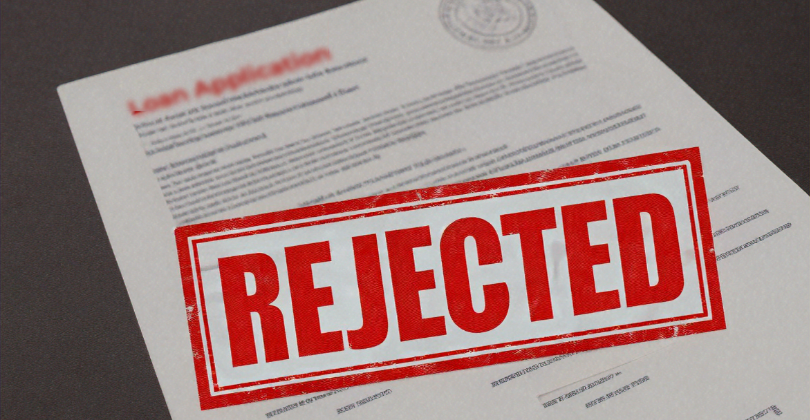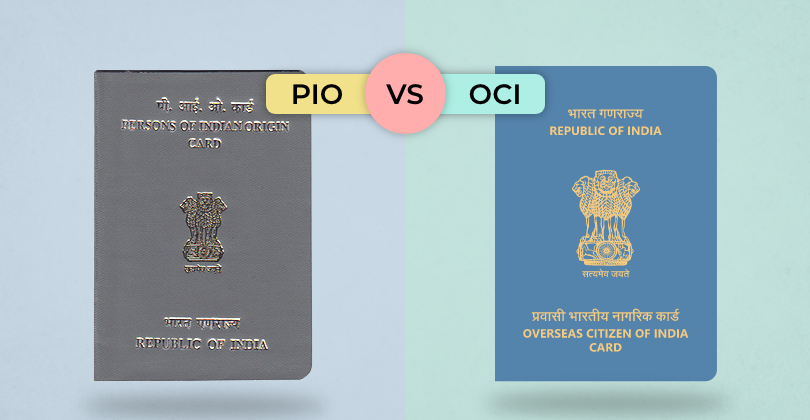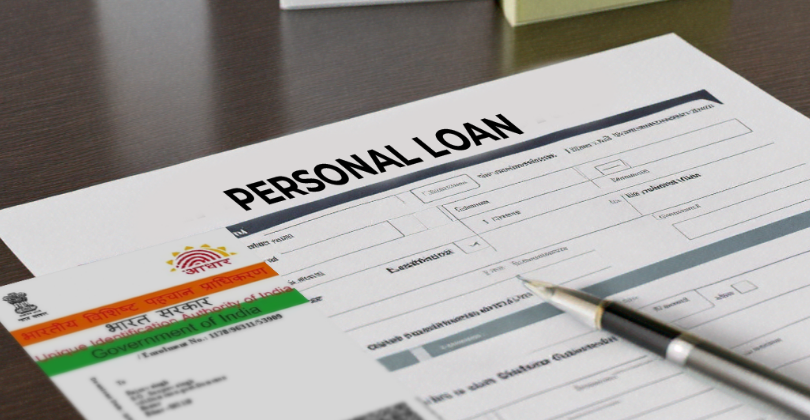Are you of Indian origin and living abroad? You've probably come across terms like PIO and OCI. These cards offer different benefits, but it can
Life is full of amazing possibilities—that dream vacation, starting your own business, or finally buying your perfect home. Thanks to a wide range of loan options from banks and NBFCs, these can feel within reach.
We all know a good credit score is important for borrowing, but have you ever been surprised by a loan rejection even with a decent credit score? The truth is, there's more to the story. A lender can reject your loan application based on various internal credit norms.
Let's understand what happens behind the scenes of loan approvals, exploring what lenders consider, and how you can improve your chances of approval.
What is a Credit Score, and How to Check a Credit Score?
Your credit score or report is like a financial report card, summarising your history of borrowing and repayment. It's typically a three-digit number calculated based on information in your credit report, which lenders use to check your creditworthiness. So, why is this score important?
A good credit score indicates responsible borrower behaviour, potentially qualifying you for better loan terms, like lower interest rates and higher loan amounts. This can save funds in the long run and make financing your goals, like a new car or a home renovation, more affordable.
To check your credit score online, you can simply visit the lender's website and download your credit report.
Beyond the Credit Score: Why Your Loan Application Might Get Stalled
You have a good credit score – that's fantastic! But even with a strong score, your loan application might get put on hold. Let's explore some lesser-known reasons why this can happen:
-
Multiple Loan Applications
While you might be excited about potential loans, submitting numerous applications in a short period can raise a red flag for lenders. It might suggest you're struggling financially and could increase your risk of default. -
You Guaranteed a Loan that has Defaulted
If you've co-signed on a loan for someone who defaults on payments, it can negatively impact your credit report. Lenders might be wary of extending credit if they see this history. -
Hidden Comments on CIBIL Credit Score
Your credit report isn't just a number. Sometimes, lenders include comments about your payment history or past loan experiences. Negative remarks, even if minor, could influence their decision about your application. -
Career Instability
Lenders value stability. Frequent job changes or a short work history at your current company could signal instability in your income, making them hesitate to approve your loan. -
Irregular Tax Paying Record
A history of late or unpaid taxes can raise concerns about your financial responsibility. Ensure you have a clean record with the taxman before applying for a loan. -
Past Loan Rejections
Loan rejections can create a negative pattern on your credit report. Address the reasons for past rejections before applying for a new loan. -
Co-applicant with a Poor CIBIL Score
If you're applying for a joint loan with a co-applicant, their credit score matters, too. A low credit score from your partner can affect your application's overall strength. -
Not Having a Balanced Credit Mix
Lenders like to see a healthy mix of credit products in your history, not just credit cards. Having a mix of instalment loans, like auto loans or mortgages, can demonstrate your ability to manage different types of credit. -
Frequent Inquiries
Every time you apply for a loan or even a credit card, a new inquiry appears on your credit report. While a single inquiry isn't a major issue, a high number of inquiries in a short period can make you seem credit-hungry and could raise a red flag.
Conquering Loan Approval: Tips to Make Your Application Shine
So, you've unlocked the possible reasons behind loan rejections, even with a good credit score. Now let’s look at some proactive steps you can take to strengthen your loan application and get that coveted "approved" stamp:
-
Check your CIBIL Credit Report for Errors
Your credit report is like a financial resume. Before applying for a loan, grab a free copy of your report and carefully review it for possible errors. Even minor mistakes can negatively impact your score. If you find discrepancies, dispute them with the credit bureau to ensure your report accurately reflects your financial health. -
Improve your DTI (Debt-to-Income) Ratio
Lenders assess your DTI. This parameter compares your monthly debt payments to your gross monthly income. A lower DTI indicates more wiggle room in your budget to manage additional loan repayments. Focus on paying down existing debts before applying for a new loan. -
Apply for a Realistic Loan Amount
Be realistic when applying for a loan. Don't overestimate your ability to repay. Choose a loan amount that comfortably fits within your budget, considering your existing financial obligations. A smaller loan amount lowers the risk for the lender and improves your approval odds. -
Add a Co-applicant
Consider adding a co-applicant with a strong credit score to your loan application. This can significantly boost your application's overall strength and make it more attractive to lenders. Just make sure your co-applicant is someone you trust and has a proven track record of responsible borrowing -
Think Beyond Traditional Banks
Don't limit yourself to traditional banks. Non-Banking Financial Companies (NBFCs) can also be a good option for low credit score personal loans. NBFCs might offer more flexible loan options and eligibility criteria compared to traditional banks. Research and compare loan products offered by NBFCs to find the one that best suits your needs.
By following these tips and understanding the factors beyond your credit score, you can significantly improve your chances of getting that loan approved and turn your financial goals into reality!
Ready to Make Your Move? Take Control of Your Financial Future
Life throws a lot our way, and sometimes, achieving your goals requires a little extra boost. Remember, a good credit score is a plus, but it's not the whole story. Focus on building a healthy financial profile, be strategic about your loan request, and explore all available options.
Looking for a fast and convenient way to access funds? KreditBee can be your ideal partner. We offer a 100% online process and hassle-free documentation anytime, anywhere. Apply now for a personalised loan quote in minutes, and upon approval, receive the funds directly into your bank account—often within 10 minutes!
Frequently Asked Questions
Yes, it's possible to apply for a loan even if you don't have a credit score. Many lenders offer loans based on factors other than your credit score.
Your credit score is a big factor, but lenders also look at your income stability, debt-to-income ratio, employment history, and even the loan amount you request.
Even minor mistakes on your credit report can lower your score and hurt your chances of loan approval. Regularly review your report and dispute any errors you find.
A healthy debt-to-income ratio (DTI) is a plus, but it's not the only factor. Lenders still consider your credit history and other financial obligations.
Yes! Adding a co-signer with a strong credit score can significantly boost your application's strength and make it more attractive to lenders.
Non-Banking Financial Companies (NBFCs) offer loan products with potentially more flexible criteria compared to traditional banks. Research NBFCs to see if they might be a good fit for you.
AUTHOR
KreditBee As a market leader in the Fintech industry, we strive to bring you the best information to help you manage finances better. These blogs aim to make complicated monetary matters a whole lot simpler.







